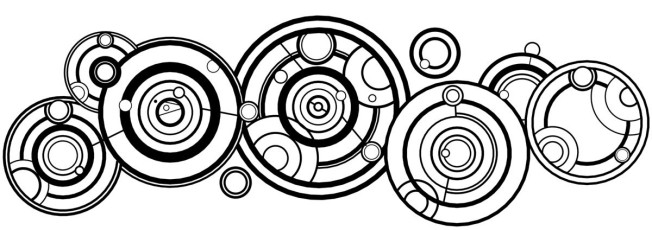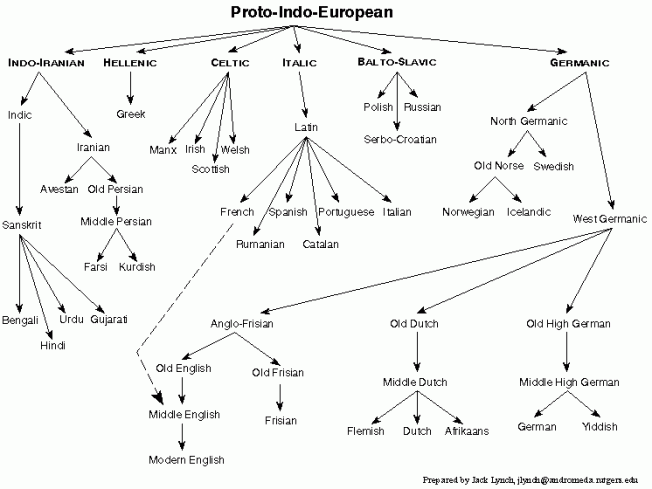A discussion of how and why real – not invented – languages are used in science fiction, fantasy, horror and historical fiction, on page and screen. How accurately are they used and does verisimilitude matter? What assumptions do authors make about their audiences’ linguistic competence and identity?
Katrin Thier, Catherine Sangster, Simon Trafford
I loved this panel. I’ll state that now, for the record, because I took a lot of notes and might be about to go off on an enthusiastic rant. Much of what was said falls firmly into the ‘oh my god, that’s so obvious now you’re explained it’ category, but it mostly wasn’t stuff I’d thought of before.
Languages, like so many things in culture (colour is another prime example), are almost always used in literature to call up particular associations. They can alienate the reader or evoke particular emotions. They can demonstrate a difference in culture, social strata or education. In one period of British history, for example, the poor spoke English and the rich spoke French.
How to Use Language in Fiction
If you use a real language and you get it wrong, there are people who will notice. As with any poorly researched detail, this is how you lose or even antagonise readers. Google Translate won’t cut it. Find someone who can actually speak the language, or make it obvious that it isn’t correct (like the Latin in Harry Potter). Bear in mind that a lot of languages have sounds, letters and grammatical structures that English doesn’t. It’s very easy to get it wrong. That said, there’s a general assumption of monolingualism in modern audiences, meaning you need to use fairly basic markers to identify a foreign language. This will inevitably impact the accuracy.

Gallifreyan doesn’t even use the same method of writing
Don’t have foreign characters sprinkle bits of their own language into common speech. This isn’t realistic. If they’re going to drop back into their mother tongue, make it a whole sentence. It doesn’t necessarily matter if the reader can’t understand what they’re saying – the characters don’t have to understand each other either! You can always have one character ask for a translation, or an explanation of pronunciation if it’s important. Alternatively, you can have written translation devices so the listening character doesn’t understand the conversation in real-time but can review a report later. Biological translators, such as the Babel Fish in Hitchhiker’s Guide, are also a neat way around it.
If you’re using multiple languages and want the reader to be able to understand them all, one easy way of doing so is to use different fonts to denote different languages. Bear in mind, though, that not all editors and publishers like this. It also creates a variable look which might throw the reader out of immersion so think hard before you take this route.
Creating a Language
There’s a difference between a constructed language (such as Sindarin), and a fake language (such as Dovahzul) which mashes exotic sounds together without an underlying structure. If you’re going to use the language in any way extensively, a constructed language is a better bet.
What language tree would your created language come from? What associations does that bring about the culture which uses it? Remember that it needs to tie in and impact your fantasy culture (see the mention of German and Japanese two weeks ago). Also remember that insults and idioms tend to be culturally specific. In the past, I’ve looked up insults native to the particular culture I’m using as a base and translated them, which has given me some nicely unusual turns of phrase as well as that slightly exotic association.

You can go much further back than this. Language trees are awesome maps of history.
Also, remember that, when you’re creating genre fiction, you’re not creating in a vacuum. The influences on you are also familiar to your audience. If you co-opt Klingon, there’s a good chance they’ll notice.
There’s no agreed models for how to transcribe non-standard varieties of English (such as Scottish). As a writer, you need to achieve a balance between authenticity and comprehensibility. Personally, I don’t like reading literal pronunciations on the page – I think the reader has to work too hard to understand what’s going on and what the accent is, which throws them out of immersion. If you can make it clear with use of vocabulary and idiom, that’s much smoother.
Examples & Associations
Welsh was used in The Dark is Rising by Susan Cooper to evoke mystery and ancient magic. There’s a psychological association with something alien but not foreign, which is very hard to achieve otherwise.
Mandarin was used in Firefly to signpost a new / future developed culture and history. It showed natural bilingualism as a common thing, even for uneducated characters. It was also a handy way of getting around the real life censors! The problem, however, is that it called up connotations that weren’t then fulfilled – read Frustrations of an American Asian Whedonite to see some of the traps of using a real world language without following through on the implications.

For an English-Mandarin culture, there’s an odd lack of Asian people in the Verse
Latin is the archetypal dead language, even though it’s not that dead! (Still actively used in science and medicine, for example.) There are a number of entrenched attitudes towards it, which always condition how we feel about the thing it’s being used for. Firstly, it’s indivisible from Western culture, easily recognisable and doesn’t need to be explained. By using Latin, you are making a very strong statement about the background culture. It is a status language which carries ideas of antiquity (both classical and renaissance), education (law, medicine, science), and religion.
In Harry Potter, ‘low’ spells such as cleaning have a Germanic base; ‘high’ spells have a Latin base. There are strong status implications, and possibly also gender ones. Interestingly, the two spells which use a Greek base are both healing spells. There’s apparently a fascinating essay called Ancient Tongues in the Wizarding World by M.G. DuPree which is well worth a read, but I’m afraid I couldn’t find an online link.
This led me onto a really interesting conversation with Simon Trafford after the panel. What about using other dead (deader) languages? I don’t speak Latin but I have used the one language I do know – Akkadian (aka Ancient Persian) – in my writing. How does that work? We decided that the more esoteric the language, the more work you have to do to explain where it comes from and set up the associations you want the reader to make. You do, however, have much greater freedom in defining those associations. Latin is instantly recognisable but you’re locked into working with the reader’s understood connotations.
Next week: women in SFF publishing.
A.C.! This is a great article! It made me really think about the way I use languages in my book series. I especially liked the info you gave about using language trees! I never even knew there was such a thing. Thanks for sharing.